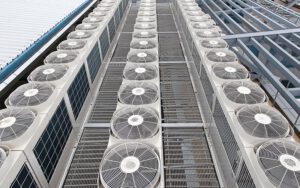The first step in setting up Pest Control business is to hire employees. While hiring an employee may seem tempting, you should try to remain a one-person operation for a while. You can offer low pay but create a rewarding environment. In addition, you should invest in client relationship management and business management software to help you manage your business more efficiently. This will ensure that your pest control services remain profitable even if you’re only one person.

A business address is also an absolute must. While it might be tempting to keep an office for the sake of display, you should not do it. Customers will probably contact you through email or phone, so a storefront might not be necessary. In addition, you’ll need a secure location to store your chemicals and equipment. Pricing is another factor. You want to make your service affordable but still, make a profit. Regardless of the level of competition, there is always room for improvement.
There are a few ways to position yourself for success as a pest control business. In addition to offering a competitive service, you should focus on customer service. Ensure that your customers are happy with the service you provide and offer a satisfaction guarantee. You can charge extra for additional services if you’re offering a one-time service. If you are working at a large company, you might want to consider acquiring smaller competitors. When dealing with pests, many people want to see the kill. They see a giant roach swarm and envision a terminator chasing down the bugs in a backpack. The bugs fall from the ceiling, presumably to die. But the reality is much more complicated. There are several different insecticides and pest control methods, and each has its advantages and disadvantages.
It’s important to be aware of your competitors. You can also choose to focus on a certain type of pest. Some companies are more environmentally friendly than others. While this may seem like a disadvantage for the consumers, it will help your customers and the environment. A specialized pest control business will also have specialized chemicals and equipment that will ensure that it is able to treat a wide range of pests successfully. In addition to focusing on a specific type of pest, you can also focus on specific markets.
In addition to being an effective pest control company, it is important to consider the risks of pest control in general. For example, some chemicals are harmful to people and pets. In addition, there is the risk that a pest control company could misapply these chemicals and cause injury or property damage. This is why pest control companies must be very careful about the conditions of their customers’ homes. It is also necessary to have a license to practice in the industry.
A pest control business should invest in an insurance plan that covers the costs of a business’s operations. It should be able to cover its liabilities, and it should be able to avoid bankruptcy. If you don’t have the right insurance, you’ll find it difficult to get the job done. Fortunately, the industry is regulated and pest control businesses must carry liability insurance. A good insurance plan will protect your business and prevent them from facing legal problems.
The best way to hire pest control technicians is to advertise on your website. It is important to let customers know you are in business to protect the community. There are many opportunities to advertise your services, including on social media. However, a pest control professional needs to be licensed to work in the field. The regulations vary from state to state, so you must do your homework before you start looking for employees. You should also research the local requirements for a licensed professional.
A pest control business should consider the seasonality of the seasons. In the winter, mice are active and looking for warm places to establish their nests. In the summer, ants, bats, and wasps can cause a great deal of trouble, and it is best to have a reputable pest control company on your side. You will be protected from the harsh weather and the dangers of these pests, as well as from legal problems.
You can also visit our other websites and post your article.
My Journey, Optimist Club, Acinm, Minimum Wage, Icon Servatory, Southern Independence, Chameleon 2000, Georgia Job, Auction Search, Internet Business Skill, Mississippi Injury, HCCH Judgments, Is Minerva, Lacrosse Home Inspector, Swiss Asia, We Back Biotech, Vote by Mail Project, Get Nate Home, SW LAW, The 17 Grace, Best HighOscar Sisto, Valley Animal, A1 Computer, Strutting In Style In My New Ride, Shadow Acre, APPLESGATE DELI – MARKET AND INTELLIGENCE, N1RCT, Madisle, Your Last Business Venture, Work of a Census Profiler, Eugene Web Design, Creative Concrete, Sally Spicer, Benefit Corporation, Discount Home Decor, Straits Business, Sing For Water, Seniors United, I Am 2135
